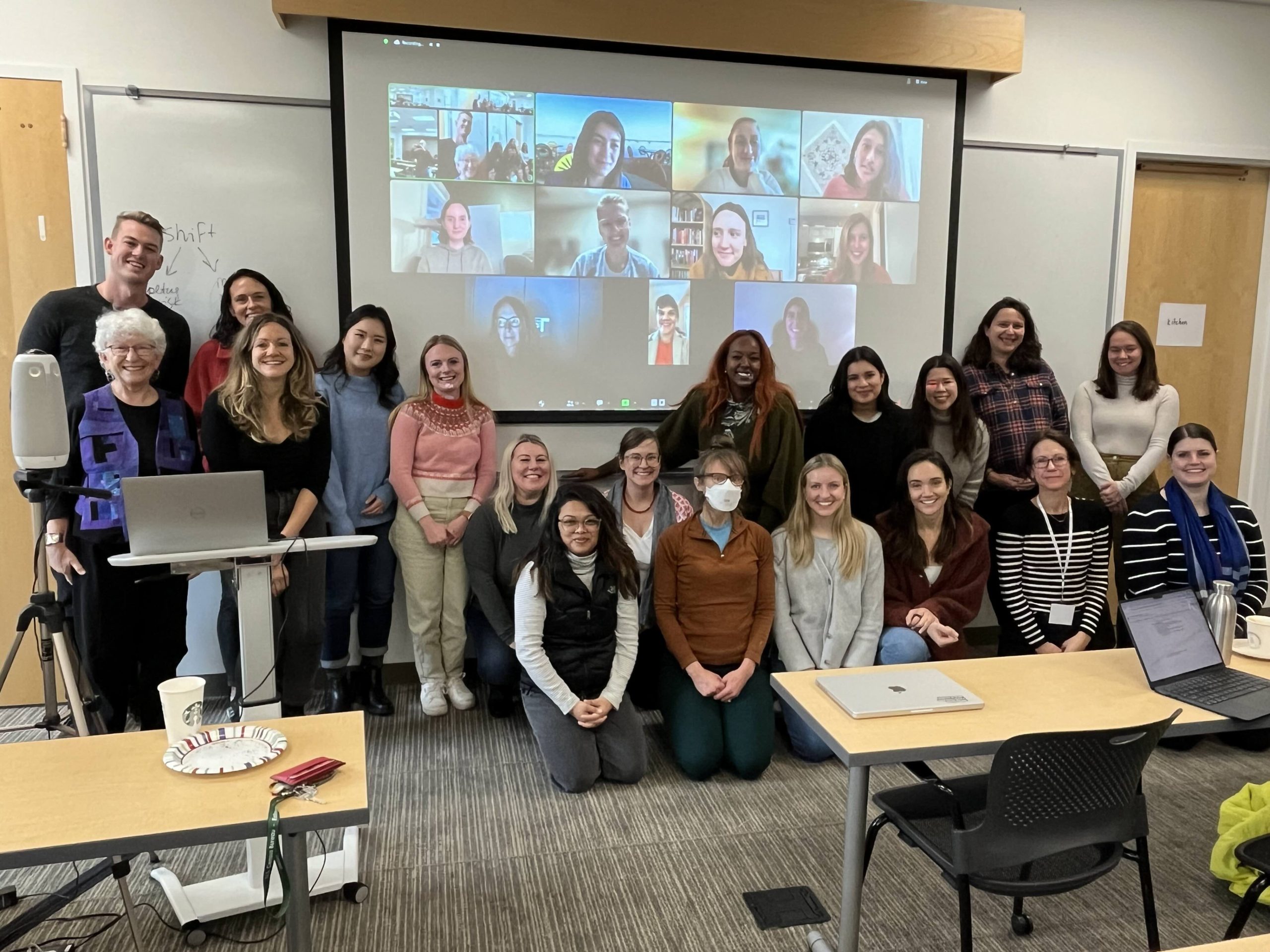Abortion research grapples with more questions than answers. And that’s no surprise. Fertility research as a whole inhabits only a small niche in demography and population studies and received limited attention after the “population bomb” panic in the mid-20th century. However, after the 2022 Dobbs decision, interest in abortion has grown significantly. Assistant Research Professor at IBS Leslie Root, and Assistant Professor of Sociology at CU Boulder Amanda Stevenson, took note.
“Abortion is challenging to study quantitatively, because the data often isn’t complete or isn’t there at all,” says Root. “There are a lot of basic research questions that are unanswered. That means there’s a lot of room for creative and innovative methods to make an impact.”
Root and Stevenson, along with Research Professor Jane Menken, Director of the CU Population Center and Professor of Health and Behavioral Sciences at CU Denver Sara Yeatman , and IBS Fellows Stefanie Mollborn and Katie Genadek, organized a first-of-its-kind workshop. Held December 6-8, 2023, the workshop addressed the gap in support and training on abortion research methods for early career researchers.
Two classes of research methods were covered at the workshop: microsimulation and life table methods. The workshop included technical training on methods for analyzing issues related to abortion and scientific presentations by senior abortion researchers.
Seven leading fertility researchers presented at the workshop, including Menken.
“I was delighted by the excitement and commitment of the young researchers at the workshop,” said Menken. “They know in their very bones how important it is to understand the impacts of changing access to abortion and contraception today. And that’s exactly what we, as fertility researchers, need to be doing.”
Menken pioneered mathematical models of reproduction and fertility analysis techniques over 50 years ago. Her work shifted the focus away from birth as a singular event and emphasized family building as a process, revolutionizing the way demography treats fertility. The renewed relevance and potential for Menken’s techniques to be used for abortion research today is “so gratifying and even amazing,” to Menken.
“We’re applying these methods to our scholarship now, and with them we can investigate questions that seemed impossible to answer for decades,” says Stevenson. “The work that Jane did was truly amazing and really focused on people’s lives in a way that demographers don’t always do.”
A total of 26 early career researchers attended the workshop, with 10 participating remotely. Participants were committed to addressing social inequality and believed the new demographic methods they learned would expand their own research. Participants also hoped to connect with other researchers working on reproductive health.
“This workshop provided me with insights into numerous interesting and important issues in reproductive justice,” says Hoeyun Kwon, a postdoctoral associate at IBS. “Additionally, I was very impressed and inspired by the passion and tremendous efforts of the workshop organizing group, particularly Leslie and Amanda.”
With the workshop’s success, Root and Stevenson hope to continue the event next year.
“I would love for this workshop to mean that the newest generation of demographers are well-trained in thinking about abortion as part of a demographic process, and about what that means for how we study it, model it, and generate new insights about it,” says Root.


